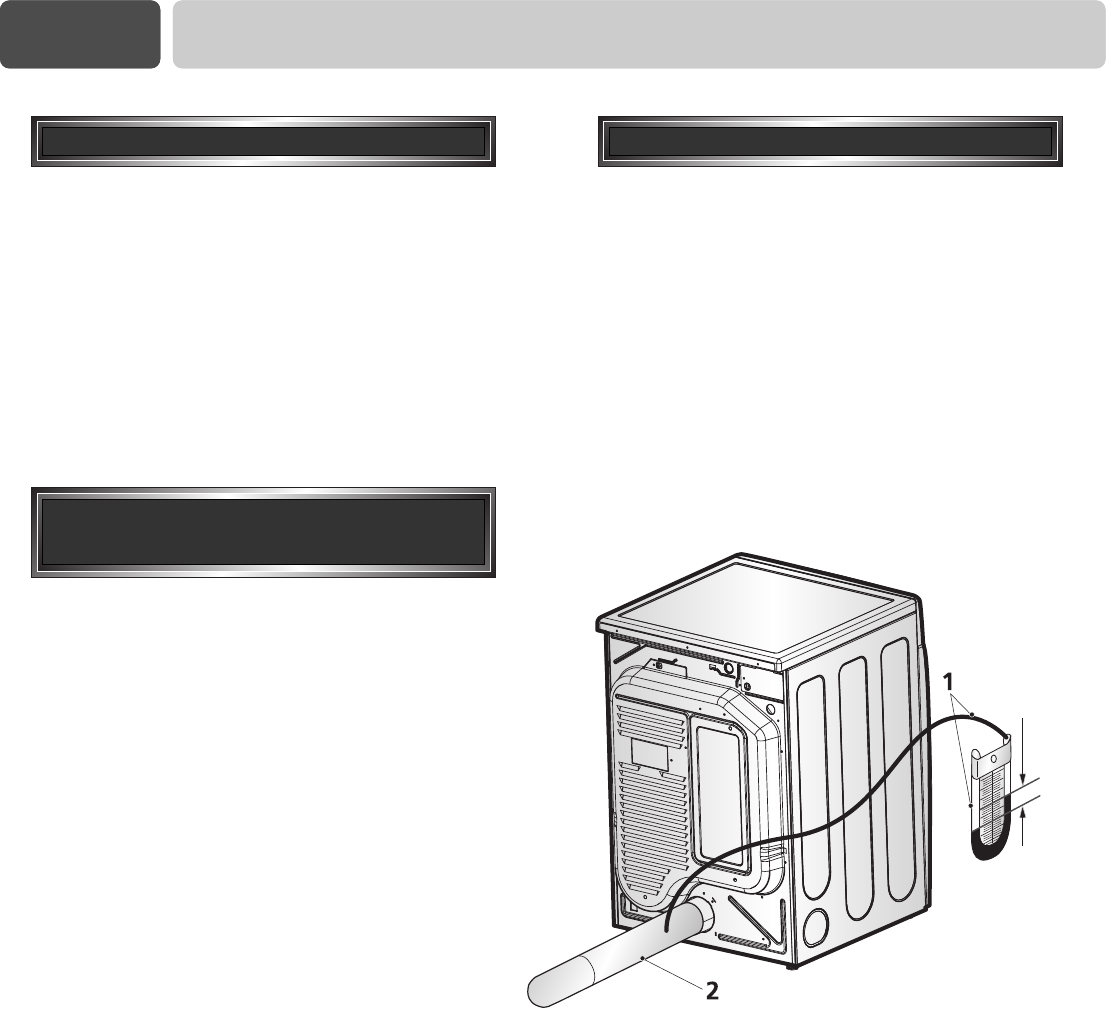
15
Part 3 INITIAL STEPS FOR INSTALLING YOUR DRYER
Prior to the first use of this appliance, use all-
purpose cleaning products or a solution of detergent
and water, with damp cloth to remove from the
inside of the dryer drum/drying compartment any
dust or dirt that may have accumulated inside the
dryer. Plug-in your dryer after reviewing the
following parts on your dryer’s Electrical
Requirements.
Effective dryer operation requires appropriate dryer
airflow. The adequacy of the airflow can be
measured by evaluating the static pressure.
Static pressure in the exhaust duct can be measured
with a manometer, placed on the exhaust duct
approximately 2 ft. (60.9 cm) from the dryer.
Static pressure in the exhaust duct should not
exceed 5/8 inches (1.5 cm). The dryer should be
checked while the dryer is running with no load.
Confirming Heat Source in Gas Dryers
Close the door to the dryer drum/drying
compartment and, after completing all steps in this
manual for proper installation of this dryer, start the
dryer on a heat setting. After the dryer starts, the
igniter will glow red and the main burner will
ignite.
Warning: If all air is not purged from the gas line,
the gas igniter may go off before the gas and the
main burner have ignited. If this happens, the
igniter will re-attempt gas ignition after
approximately two minutes.
Confirming Heat Source in Electric Dryers
Close the door to the dryer drum/drying
compartment and, after completing all steps in this
manual for proper installation of this dryer, start the
dryer on a heat setting. The exhaust air or the
exhaust pipe should be warm after the dryer has
been operating for three minutes.
Measuring Static pressure
5/8 inches (1.5 cm)
MAXIMUM STATIC
PRESSURE IN
WATER COLUMN
STEP 6
Preparation of the Dryer.
STEP 8
Dryer Airflow.
STEP 7
Confirming Heat Source
Operation.
Manometer
Exhaust Duct


















